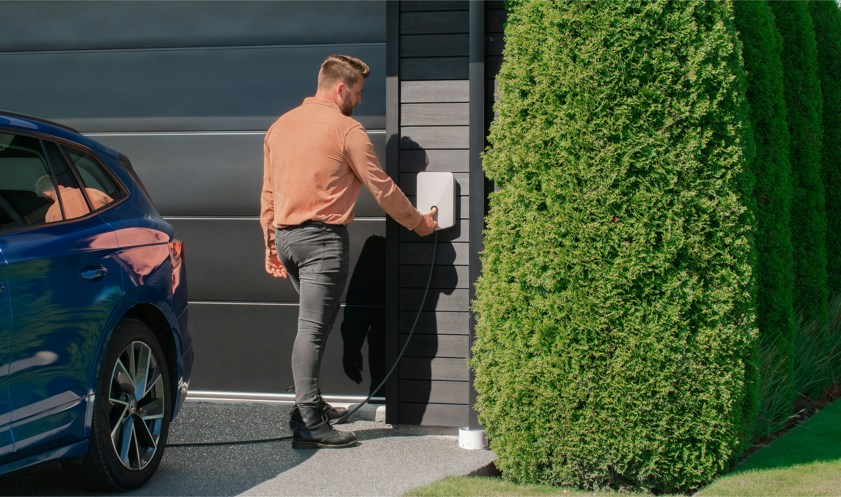
Imagine waking up every morning to a fully charged car, ready to whisk you away without a single drop of petrol. This dream is now a reality for many electric vehicle (EV) owners.
With increasing environmental awareness and the availability of electric vehicles, more people are saying goodbye to petrol stations. The UK Government is on board too, pushing for a future with zero-emission vehicles and planning to introduce a Zero Emission Vehicle (ZEV) mandate from 2024.
Understandably, many Brits are looking for guidance on how to transition to using an electric vehicle and what they need to do if they want to use an electric charging port at home - with searches for ‘electric charging ports’ skyrocketing by 413%.
In this guide, Nationwide Vehicle Contracts, answers your burning questions about adding electric charging ports at home, including:
It's legal and encouraged to install electric vehicle charging points at home. Since 2022, new UK laws require that new homes and buildings must have access to electric vehicle (EV) charging points, supporting the government's plan to phase out petrol and diesel cars by 2035.
Additionally, the installation of an electric charging point in your home does not require planning permission if:
- The installation site is designated for off-street parking.
- The installation does not exceed 0.2 cubic metres in size.
Always check with your local authority for additional regulations or considerations, as requirements may vary by location.
While it is possible to install an electric charging point yourself, professional installation by a specialist or electrician is recommended for safety and compliance.
If you haven’t already purchased or leased a new electric vehicle yet, you may be able to buy a bundle that includes a home charger installation. When having your home charging point installed, factor in whether you want a tethered or untethered charge point, the length of the cable, and the speed of your charging point.
Tethered Charging Points come with a fixed cable attached to the charger, offering convenience as you don't need to use your own cable every time you charge. However, they are limited to the type of connector on the cable, potentially restricting the types of EVs that can be charged if future models have different requirements.
Untethered Charging Points require you to use your vehicle's charging cable. This offers flexibility to charge different types of EVs with various connector types but adds an extra step to the charging process as you need to connect your cable each time.

Charging an electric vehicle at home is usually the most convenient and cost-effective method of recharging. Most EV drivers charge their electric car overnight, preferring to wake up to a full battery every morning.
In terms of cost, the average domestic electricity rate is about 14p per kWh, meaning it would cost you around £5.88 (3.1p per mile) for 188 miles of range using a 3kW home charger, according to Zap-Map home charging calculator.
The Ofgem price capped domestic tariff of January 2024 is currently set at £0.28 per kWh and a daily standing charge of £0.53, but the actual cost of running an electric charging port may depend on different connectors, speeds and rates.
Note that costs can vary based on the charger's speed, the type of connector used, and current electricity tariffs, such as the Ofgem price cap.
Since electric charging ports are a new phenomenon, estimations suggest that adding one to your property can increase your value between 5%-30%. However, as the popularity of EVs grow, installing one will be a valuable investment in your home when it comes to its future resale value.
An installed charging port not only enhances property appeal but also positions your home as future-proof, aligning with the shift towards sustainable transportation.
“There has never been a better time to consider installing an electric charging port in your home, as you will not only benefit from a more convenient and cost-effective way to keep your vehicle charged, but your home will also be compliant with any future city plans.”

Embarking on the EV journey offers a chance to contribute to environmental preservation, save on fuel costs, and engage with the latest automotive innovations.
Visit our EV hub for all things electric. From detailed guides on choosing the right EV for your needs to insights on the latest government incentives and tips on maximizing your EV's performance, we've got you covered.
Considering leasing an EV? Our experts are ready to assist you in selecting the perfect EV model and installing a charging port, ensuring a smooth transition to an electric vehicle. Give us a call on 0345 811 9595.
Originally posted: 11th March 2024

